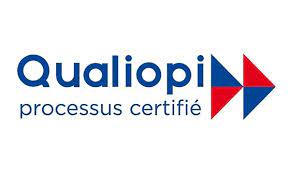[vc_row][vc_column][vc_custom_heading text=»5 consejos a la hora de hablar inglés » font_container=»tag:h1|text_align:center|color:%2335a303″][vc_empty_space height=»50px»][/vc_column][/vc_row][vc_row][vc_column][vc_column_text]English is widely acknowledged as the language of business and understandably forms an integral part of professional success. That being said, it is not as easy as some people may think. Time and time again we see learners struggle to grasp basic concepts and repeatedly make the same mistakes. How can this be when English is supposedly one of the easiest languages to learn?
Spain has historically had significant difficulties when learning English compared to other European countries, due to the lack of daily exposure to the language it has, the main one being having television dubbed in their native tongue. Most other European countries watch television programmes in their original version/undubbed, giving them a head start from an early age to absorb all the different sounds the English language has to offer. Nevertheless, this does not make it entirely impossible for professional learners to find original content online with which they can learn, and take to the classroom with them. Willingness to do that bit extra always pays off in the end!
We understand it is hard to do these extra learning activities when most of us are working long hours, and all we want to do when we get home is put our feet up and unwind.
We at Teachify offer you professional native teachers on demand, we offer you flexibility, we offer personalised evaluations, we offer motivation and we offer material created to push learners to improve and succeed in their respective fields.
¿Quieres probar Teachify?
Clases particulares de inglés en Sevilla
[/vc_column_text][/vc_column][/vc_row][vc_row][vc_column][vc_single_image image=»782″ img_size=»full» alignment=»center» style=»vc_box_shadow_border_circle» css_animation=»fadeIn»][vc_btn title=»¡PRUEBA AHORA!» style=»3d» color=»green» size=»lg» align=»center» css_animation=»bounceIn» link=»url:https%3A%2F%2Fteachifyapp.com%2Fprueba-teachify%2F||target:%20_blank|»][vc_empty_space][vc_custom_heading text=»5 easy tips!» font_container=»tag:h1|text_align:center|color:%231f89c6″][/vc_column][/vc_row][vc_row][vc_column][vc_empty_space height=»50px»][vc_column_text]However, much in the same way that your personal trainer at the gym cannot eat your salads for you, what we cannot do is make you pick up that book and read a few pages in English. We cannot make you listen to a podcast of your interest. We cannot prevent you from changing the language to Spanish on Netflix. This has to come from your desires to feel proud of and to speak loud.
This week, we have decided to offer a few 5 useful tips on some common mistakes made by learners.
Tip 1: ‘S’ on the third person
- Third person present simple = He plays the guitar/she plays the guitar.
- ¡OJO! Negative sentences: He doesn’t play the guitar/she doesn’t play the guitar.
- Question: Does he play the guitar?/does she play the guitar?
Tips 2: Person vs people
- Person = 1 person e.g. I saw that person down the pub earlier today.
- People = more than 1 person e.g. I saw those people down the pub earlier today.
- ¡OJO! That person IS from England.
- Those people ARE from England.
Tip 3: Advice vs advise
- Advice /ədˈvaɪs/ = noun e.g. I tried to give him some advice, but he didn’t want to listen.
- Advise /ədˈvaɪz/ = verb e.g. I advised him on what he should do next. It’s up to him what he chooses to do with it.
- ¡OJO! Advice is uncountable unlike in Spanish.
The pronunciation is different. The verb is voiced /z/ whereas the noun is unvoiced /s/.
For more information you can visit:
https://en.wikipedia.org/wiki/Voice_(phonetics) (English)
https://es.wikipedia.org/wiki/Voz_(fonología) (español)
Tip 4: Age
- Talking about age. Firstly, it is I am and NEVER I have.
- You can perfectly say, «I am 28.»
- You can perfectly say, «I am 28 years old.»
- What you cannot say is, «I am 28 years.»
Tip 5: Dropping the subject from a sentence
- In English you MUST use a subject, or the sentence is incomplete.
«Es fundamental aprender inglés» is correct in Spanish, but when we translate this, many learners say, «is fundamental to learn English.» Can you find the mistake? It should say, “it is fundamental to learn English.”
We hope you have enjoyed this mini article on 5 common mistakes made by Spanish speakers. If you have any queries, feel free to contact us as we would be more than happy to help at Teachify. #Sevilla[/vc_column_text][/vc_column][/vc_row][vc_row][vc_column][vc_single_image image=»1135″ img_size=»large» alignment=»center»][vc_facebook css_animation=»bounceIn»][vc_tweetmeme share_via=»Teachifyapp» css_animation=»bounceIn»][/vc_column][/vc_row]












